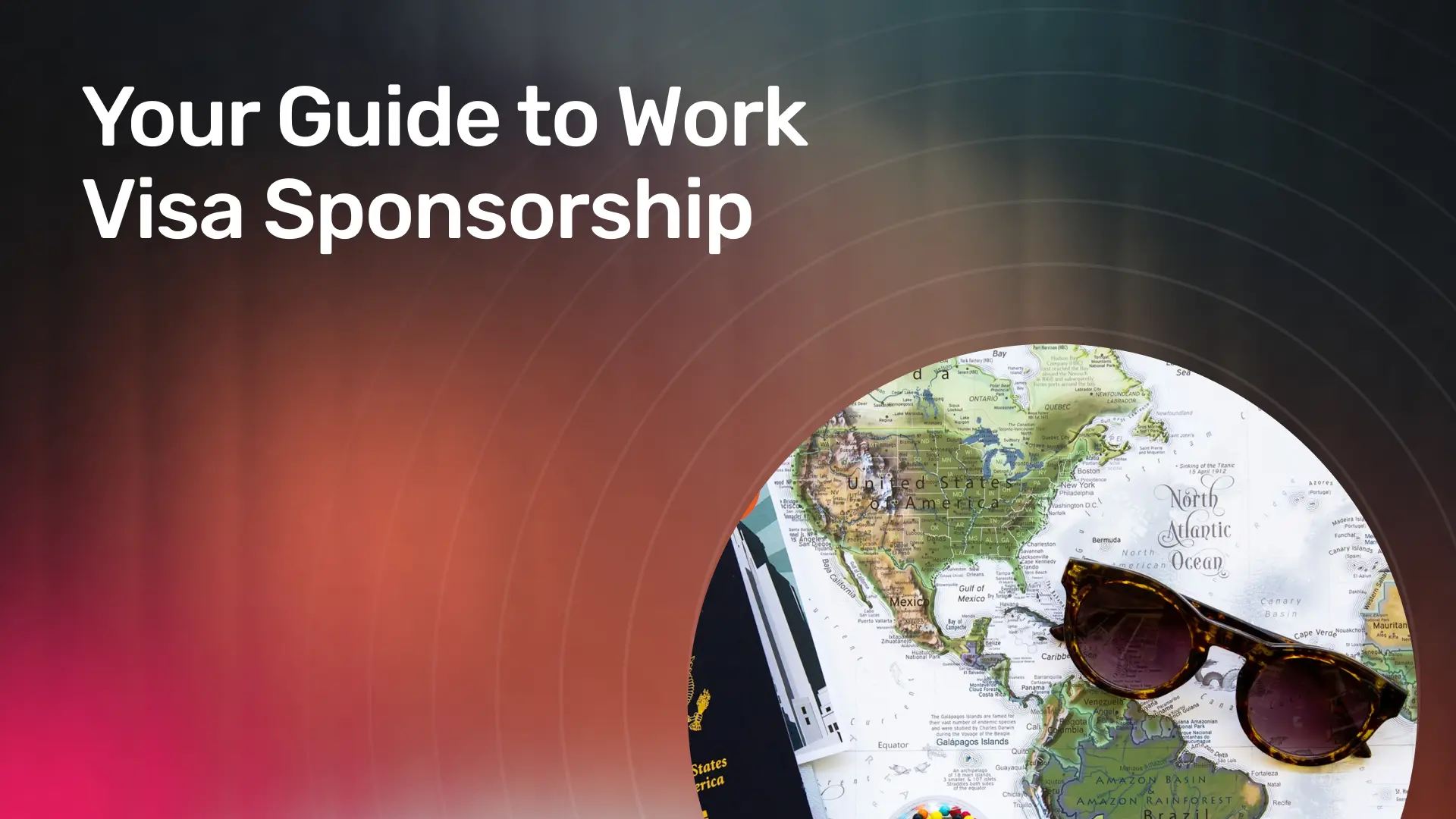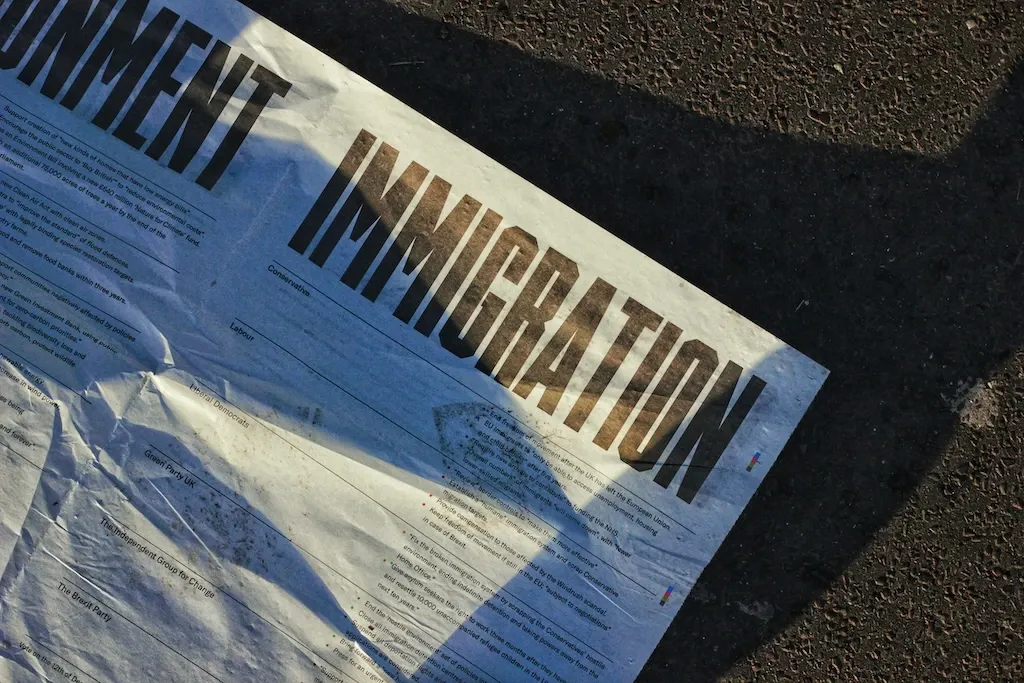Unlock Global Talent: Your Guide to Work Visa Sponsorship
In an increasingly globalised economy, hiring international talent is a strategic move that can drive innovation, enhance competitiveness, and address skill shortages. However, work visa sponsorship can be a complex process, requiring employers to navigate legal requirements, costs, and compliance. This guide provides a comprehensive, step-by-step overview of work visa sponsorship, highlighting key considerations, visa categories, and best practices to ensure a smooth process.

Why sponsor work visas?
Expanding your hiring efforts internationally can bring multiple benefits to your organisation. From accessing specialised skills to improving workplace diversity, work visa sponsorship is an essential tool for companies looking to remain competitive in today’s global market.
Access to specialised skills
In many industries, local talent shortages make it challenging for companies to find qualified professionals. By sponsoring work visas, businesses gain access to a broader talent pool, ensuring they can fill crucial roles with highly skilled professionals. Industries such as information technology, healthcare, engineering, and finance often require specialised skills that may not be readily available in the domestic workforce.
Diverse perspectives
Hiring international employees brings new perspectives, fresh ideas, and innovative approaches to problem-solving. A multicultural workforce enhances creativity, leading to improved business strategies and increased adaptability in an evolving global market. Studies have shown that diverse teams perform better, make more informed decisions, and drive greater financial performance (Harvard Business Review).
Enhanced company reputation
Businesses that actively embrace global talent are perceived as inclusive and forward-thinking employers. This enhances their reputation, making them more attractive to top-tier candidates, investors, and customers. Companies with diverse workforces are often seen as more adaptable to international markets, expanding their reach and influence worldwide.
Competitive advantage
Companies that sponsor work visas can gain an edge over competitors by securing the best available talent, regardless of geographical boundaries. Accessing global talent ensures that businesses remain innovative, competitive, and capable of meeting market demands. Furthermore, companies with diverse teams often experience increased employee satisfaction and retention rates, leading to long-term success.

Understanding the work visa sponsorship process
Work visa sponsorship involves several steps, from identifying the correct visa type to completing applications and ensuring compliance with immigration laws. Employers must be prepared for documentation, legal procedures, and processing timelines.
Identify the right visa category
Each country has different visa options for skilled workers. Employers must select the most suitable category based on job requirements and employee qualifications. Some of the more popular categories are the following:
- H-1B Visa (USA) – Designed for specialised occupations in IT, engineering, healthcare, and more. Requires employer sponsorship and is subject to an annual cap.
- Skilled Worker Visa (UK) – Allows employers to sponsor skilled professionals who meet the salary and job eligibility requirements (UK Home Office).
- Employer-Sponsored Visa (Australia) – Enables businesses to hire overseas workers in critical skill areas (Australian Government).
- EU Blue Card (Europe) – A work permit for highly skilled non-EU nationals that allows them to work and live in EU member states (EU Blue Card).
- Work Permits (Canada) – Temporary work permits for foreign workers based on employer sponsorship and labour market needs (Government of Canada).
Labour market impact assessment (if required)
Some countries require proof that hiring a foreign worker will not negatively impact local employment. Employers may need to submit a Labour Market Impact Assessment (LMIA) in Canada or the Resident Labour Market Test in the UK. This process ensures that foreign hires do not displace local workers and that employers genuinely need international talent.
Sponsorship application
Before hiring foreign workers, companies must obtain official sponsorship status in some countries. This involves demonstrating financial stability, compliance with employment laws, and a genuine need for skilled workers. The process may include background checks, audits, and regulatory approvals.
Employee application
Once sponsorship is approved, the employee or the employer must submit a visa application, including proof of employment, qualifications, language proficiency (if required), and medical examinations. Processing times vary by country and visa category, so planning ahead is crucial.
Visa processing
Work visa processing times can range from weeks to several months, depending on the country and visa type. Delays can occur due to backlogs, incomplete documentation, or changes in immigration policies. Employers should track the application status and remain proactive in addressing any issues.
Supporting employee relocation
Beyond securing a work visa, employers should assist new hires with relocation. Support may include finding accommodation, helping with cultural integration, providing language training, and guiding them through administrative tasks such as setting up a bank account and registering for healthcare. A well-supported transition increases employee satisfaction and productivity.

Key considerations for employers
Employers must be aware of various legal, financial, and administrative factors involved in work visa sponsorship. Ensuring compliance with immigration laws and preparing for potential costs are essential steps in the process.
Eligibility requirements
Employers must ensure they meet all sponsorship criteria, which often involve demonstrating the company’s financial stability, offering fair market wages, and strictly adhering to all applicable immigration laws. Certain visa categories impose specific requirements regarding job roles, mandated salary thresholds, and the precise qualifications of the employee. A thorough review of these requirements, tailored to the specific visa sought, is important to avoid application rejections and delays. Demonstrating a clear and justifiable need for the foreign employee is also crucial, as immigration authorities scrutinise these applications to ensure that domestic labour markets are not adversely affected.
Costs involved
Work visa sponsorship can be a significant financial undertaking, encompassing a range of costs that employers must carefully budget for. These costs include, but are not limited to, government application fees, legal expenses for immigration counsel, ongoing compliance costs, and potential relocation assistance for the sponsored employee.
Employers should conduct a comprehensive cost analysis, factoring in potential unforeseen expenses, to prevent financial strain. Accurate budgeting ensures that the sponsorship process proceeds smoothly without unexpected financial burdens, and allows for informed decision-making regarding international hiring strategies.
Legal counsel
Given the intricate nature of immigration law, engaging experienced immigration attorneys or specialists is strongly advised. These professionals provide invaluable guidance, navigating the complexities of the visa application process and preventing potential legal complications. Their expertise ensures accurate documentation and adherence to all applicable regulations. Early engagement with legal counsel minimises the risk of costly errors and delays, promoting a streamlined sponsorship process.
Compliance
Employers must comply with visa conditions, including the provision of prevailing wages, adherence to contractual obligations, and timely fulfilment of reporting requirements. Non-compliance can result in significant penalties, including fines, sponsorship revocation, or legal action. Employers should establish robust internal controls to monitor compliance and ensure adherence to all regulatory mandates. Periodic audits and reviews of immigration-related practices can proactively identify and address potential compliance issues. By prioritising compliance, employers uphold their organisational integrity and ensure the successful integration of international talent.
Read more on mobility: Global Mobility Trends 2024: Insights and Predictions for the Future

Tips for a successful work visa sponsorship
A smooth visa sponsorship process requires proactive planning and strategic execution. Employers can improve their chances of success by following these best practices.
Start early
Given the complexity and potential delays in visa processing, companies should start the sponsorship process well in advance to avoid disruptions in hiring plans. This proactive approach allows for the gathering of necessary documentation, the scheduling of required appointments, and the absorption of any unforeseen processing delays. By commencing the process far in advance of the desired employee start date, organisations can mitigate the risk of project setbacks and ensure a smooth onboarding experience for their international hires.
Work with immigration experts
Partnering with experienced immigration consultants can simplify the process and ensure all legal and regulatory requirements are met. These experts possess in-depth knowledge of ever-changing immigration laws, reducing the likelihood of errors that could lead to application rejections or delays. Their guidance ensures that all necessary forms are completed accurately, deadlines are met, and the employer remains compliant with all applicable regulations. Leveraging their expertise can save valuable time and resources, allowing companies to focus on their core business operations.
Offer competitive benefits
Attracting and retaining international talent requires offering competitive salaries, benefits, and relocation support. Providing a welcoming environment can enhance job satisfaction and retention. Beyond monetary compensation, a comprehensive benefits package that includes health insurance, paid time off, and retirement plans demonstrates a commitment to employee well-being.
Additionally, providing substantial relocation assistance, such as temporary housing, language support, and cultural orientation, can ease the transition for international employees and foster a sense of belonging. Cultivating a supportive and inclusive workplace culture further increases employee satisfaction and long-term retention.
Stay updated on immigration policies
Laws and regulations surrounding work visas frequently change. Employers should stay informed about new immigration policies to ensure compliance and plan their hiring strategies effectively. This requires ongoing monitoring of government websites, legal publications, and consultations with immigration experts. Proactive engagement with policy changes allows organisations to adapt their recruitment practices and ensure that they remain compliant with the latest regulations. This foresight helps avoid legal pitfalls and maintains the integrity of the hiring process, ensuring the smooth integration of international talent into the workforce.

Apply for visas and work permits through Native Mobility!
Navigating work visa sponsorship can be challenging, but employers can streamline the process with the right expertise and support. Native Mobility simplifies international hiring by providing expert guidance on visa applications, sponsorship compliance, and relocation strategies.
Start your global hiring journey today with Native Mobility!
Conclusion
Work visa sponsorship unlocks global talent, offering significant benefits like specialised skills and diverse perspectives. However, success demands careful planning. Start early, partner with experts, provide competitive advantages, and stay updated on policies. Navigating the process, from visa selection to compliance, requires diligence. By doing so, you build a dynamic, global workforce. For streamlined support, consider services like Native Mobility. Investing in international talent is an investment in your company's future.
